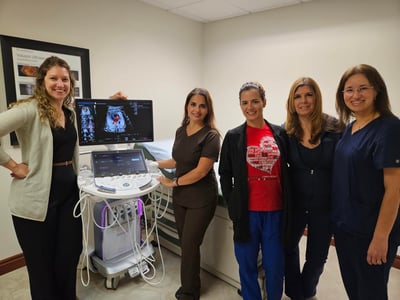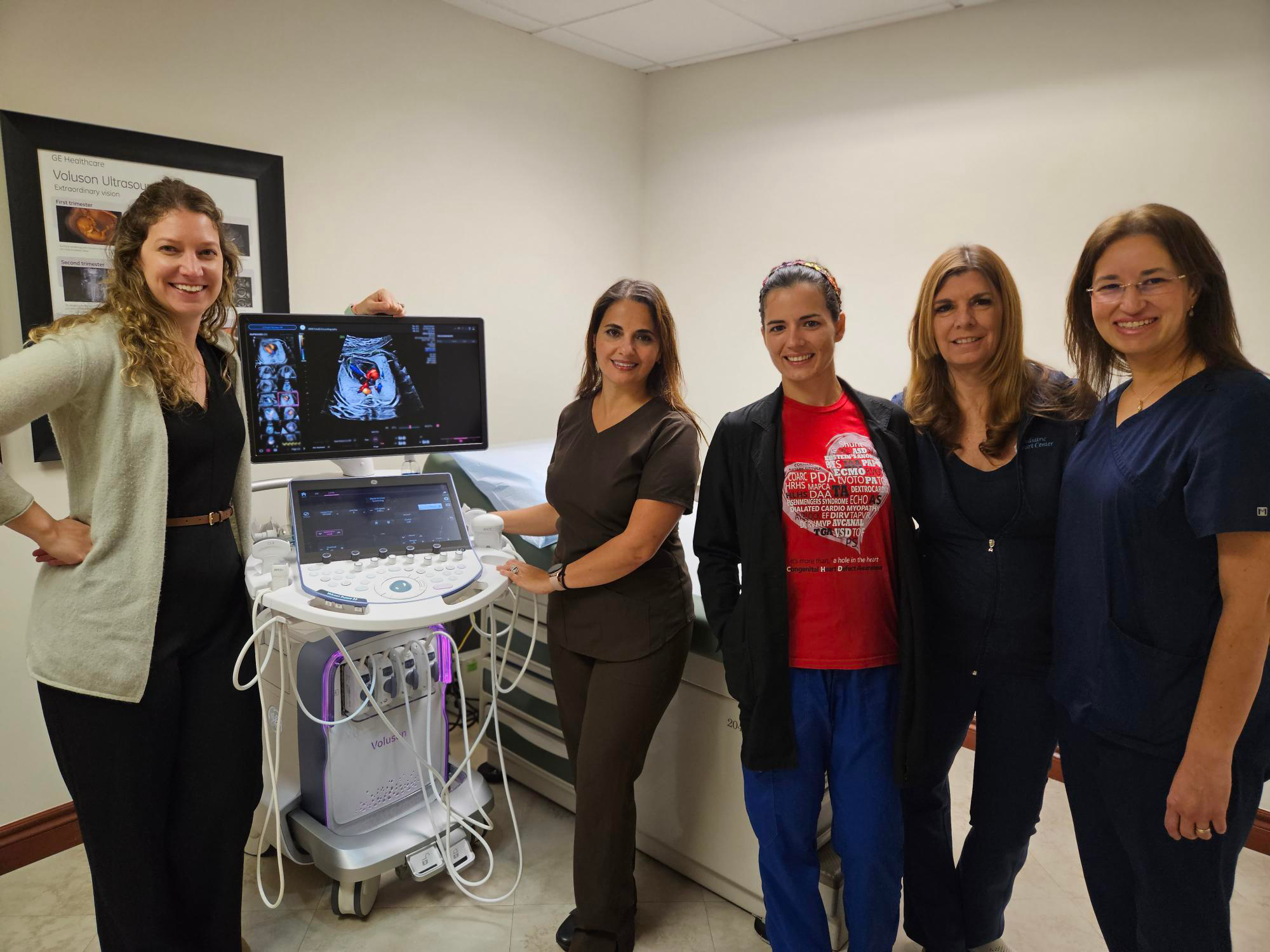Whether the patient is you, your unborn baby or your school-aged child, the multidisciplinary teams in Pediatrix® Medical Group practices across the country are committed to providing compassionate, evidence-based care.
 We know the best patient outcomes are achieved through team-based care that prioritizes communication, quality and putting the patient first. From maternal-fetal medicine (MFM), OBGYN and neonatology to urgent care, developmental medicine and pediatric gastroenterology, the clinicians and support staff at each Pediatrix location deliver family-centered care by:
We know the best patient outcomes are achieved through team-based care that prioritizes communication, quality and putting the patient first. From maternal-fetal medicine (MFM), OBGYN and neonatology to urgent care, developmental medicine and pediatric gastroenterology, the clinicians and support staff at each Pediatrix location deliver family-centered care by:
- Treating patients and their families with dignity and respect
- Listening carefully to patients’ concerns and answering their questions
- Communicating clearly and often
- Being generous with their time during patient visits
- Practicing the latest research-based techniques and treatments
- Caring for patients like members of their own family
Providing family-centered care requires communication and coordination among our staff, referring physicians, consulting specialists and other care providers. For example, when patients choose Pediatrix® Cardiology of South Florida for pediatric care or Fetal Heart Institute of Florida for fetal care, they benefit from the expertise of nearly a dozen skilled professionals.
If a pregnant woman is seeking a fetal cardiology consult, she will speak with a scheduler after she’s referred to the practice by her MFM specialist or obstetrician. In some cases, the referring physician will call the practice directly.
Then, a patient services representative will confirm the patient’s insurance and send her forms to complete if she’s unable to complete them using the practice’s online registration system.
On the day of the appointment, the patient will check in at the front desk with the scheduler. No vital signs are taken for pregnant patients. Instead, once the patient is in the exam room, a sonographer will take imaging studies of the baby to assess his or her heart anatomy and physiology in the womb.
For pediatric cardiology and adult congenital cardiology patients, a medical assistant will take the patient’s height, weight, blood pressure, heart rate, pulse oximetry and an electrocardiogram (EKG) reading. A sonographer may also take an echocardiogram of pediatric and adult patients. Sometimes, a patient will be seen by a nurse practitioner or physician assistant, who will talk with the patient about his or her medical history and physical health, before meeting with the cardiologist. The cardiologist will discuss what is needed, such as advanced imaging like an MRI or CT, a procedure such as a cardiac catheterization, or an extended recording of the patient’s heart rhythm (Holter monitor or event monitor).
Pregnant moms with complex fetal heart concerns will meet with both the cardiologist and fetal nurse practitioner together to discuss:
- The diagnosis
- The delivery plan
- The plan for the baby before his or her first operation, if necessary
- The plan for the baby after his or her first operation
- Potential feeding and growth challenges due to the diagnosis
- Potential developmental concerns associated with the diagnosis
- Genetic concerns associated with the diagnosis

From Left to Right: Pediatric Cardiologist, Katelyn Snyder, M.D.; Family Nurse Practitioner, Julissa Escorcia; Chief Sonographer, Madlin Khoury; Medical Assistant, Helma Kourie and Patient Services Associate, Andrew Pagan; Scheduler, Karin Brid
“Learning that your unborn baby has a heart issue can be an overwhelming time for patients,” explained Katelyn Snyder, M.D., a fetal and pediatric cardiologist with Pediatrix Cardiology of South Florida. “To reduce some of our patients’ stress, I go over the test results while a nurse practitioner takes notes for the parent-to-be.”
The nurse practitioner will place the notes and other useful informational handouts in a folder that is given to the patient before she leaves the practice’s office. The nurse practitioner also helps change the delivery location if needed and calls to check up on the patient in the days after.
All patients will check out with a scheduler or medical assistant before they leave the physician’s office.
But the care doesn’t stop there. If a fetal cardiology patient needs to deliver at a specialty care hospital or “tertiary” hospital, Dr. Snyder offers prenatal appointments at the hospital so the patient can meet the rest of her care team. This may include a sonographer, neonatologist, OBGYN, cardiac surgeon and palliative care team. If any patient needs a higher level of care, our team includes some of the nation’s top pediatric specialists.
No matter the specialty, our compassionate, multidisciplinary teams work together to meet each patient’s unique needs. From wellness to illness, birth to adulthood, our pediatricians and specialists are dedicated to delivering the highest level of health care and support when your family needs it most. Learn more about our teams or find care.
